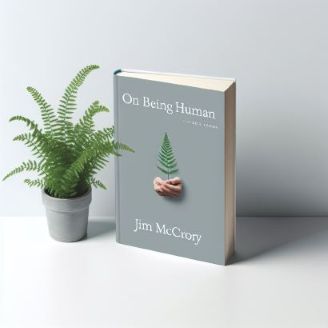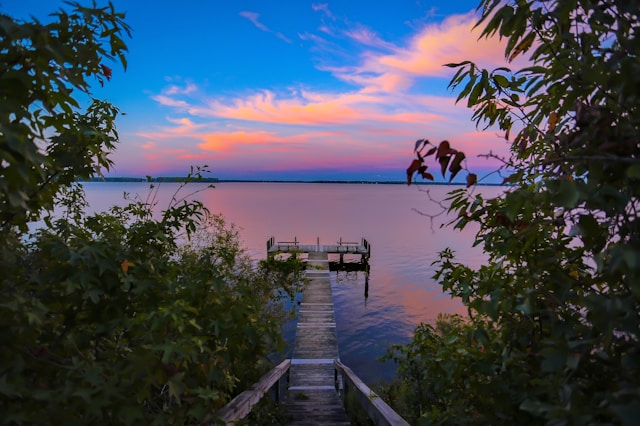The psychologist leaned in slightly and
asked, “What’s the capital of Scotland?”
“Edinburgh, of course,” he replied.
His next question caught him off guard:
“And when was the last time you shared a meal with friends?”
Suddenly, a warm reel of memories began to
play in his mind—a slow, cosy film where laughter mingled with the scent of
food, and time seemed to stretch in the glow of shared company.
On What it Means to Be Human — Jim McCrory

Image kindly provided by https://unsplash.com/@yvonnemorgun
But they shall sit every man under his vine and under his fig tree;
and none shall make them afraid:
for the mouth of the Lord of hosts hath spoken it.
Micah 4:4 (KJB)
Sobremesa: The Art of
Lingering in a Fast-Paced World
In a world that glorifies
speed and productivity, where our days are measured in schedules and deadlines,
the Mexican tradition of sobremesastands out like a quiet rebellion. It’s a
word I didn’t grow up with, but one that resonates deeply with the quieter
rhythms of life I’ve come to cherish over time. Sobremesa is not just the time
spent at the table after the meal is finished, but the celebration of
togetherness, the shared moments that linger long after the last bite has been
taken.
Growing up in Glasgow,
meals were often practical affairs. The city moved to the rhythm of its
shipyards and industries, and meals mirrored that pace. Food, in my childhood
home, was sustenance—something to keep the body going before the next task.
Yet, tucked into those hurried moments were the seeds of something slower,
something closer to sobremesa. There were nights when conversation stretched
long after the plates had been cleared, and I would find myself drawn into the
world of my parents’ memories, stories of their childhoods, and the hardships
and joys that shaped them. I didn’t know it then, but those moments—the
laughter, the sighs, the comfortable silences—were fragments of what sobremesa
embodies.
It wasn’t until later in
life that I experienced a more intentional version of this tradition. My wife
and I began to cherish slow Sunday afternoons, particularly when visiting
friends. We would linger over cups of tea, talking about everything and
nothing, as time seemed to slow to a comfortable crawl. The conversation wasn’t
about achieving something or checking off a task; it was about presence,
connection, and the shared human experience. In those moments, I realized that
the space after the meal—the sobremesa—was just as nourishing as the food
itself.
And here’s the beautiful
thing: no matter how often we gathered, no matter how many times we shared
those meals, we never tired of it. There was always something new to discuss,
some story to revisit or some laughter to be had. It was as if these moments
with loved ones, this time spent together after the meal, was something
infinite in its appeal. I suspect that even if we lived forever, we would never
tire of sitting down to a meal with family and friends. The act itself, like sobremesa,
never grows old because it taps into something eternal—our deep need for
connection, for communion with others.
There is something almost
sacred about this time. In a world where so much is transactional, sobremesa
asks nothing of us but our presence. It invites us to be, rather than do. To
share, rather than compete. In this space, stories are passed on, wisdom is
exchanged, and relationships deepen. It’s a practice that reminds me of the
spiritual dimensions of community—the importance of staying a little longer, of
listening a little more carefully, of allowing time to unfold naturally without
rushing to the next thing.
As I reflect on this, I
think about how much we lose when we hurry through life. In the push for
efficiency, we forget the richness of connection, the joy of simply being with
others. Sobremesa offers us an antidote to this, a reminder that some of the
most meaningful moments happen when we let go of the need to be somewhere else.
Perhaps that’s why sobremesa
feels so timely and timeless to me. In a culture often focused on what’s next,
it offers the gift of now. It’s an invitation to linger, to engage in the deep
human need for connection. And in a world where so many are isolated, where
divisions grow wider, sobremesa reminds us that the simple act of sitting
together, of sharing a moment, can be one of the most profound ways to foster
community.
It is in the lingering
that we find meaning, in the small, unhurried moments that reveal the fullness
of our shared humanity. In those extended conversations after a meal, we are
reminded that we were never meant to go through life alone, but in communion
with others—whether over coffee, or tea, or something as simple as the warmth
of another person’s presence.
And maybe, just maybe,
the world could use a little more sobremesa. Because if we were made to live
forever, we’d still look forward to those meals, still find joy in the company
of those we love, still cherish the conversations that flow long after the last
bite is taken. Some things, it seems, are timeless.




